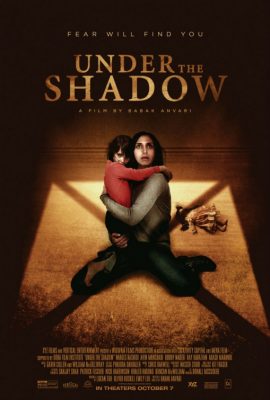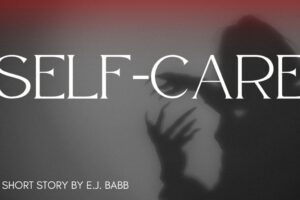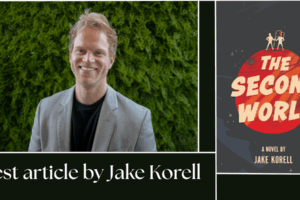
Directed by Babak Anvari
Screenplay by Babak Anvari
Starring Narges Rashidi, Avin Manshadi, Bobby Naderi
I’m going to end this Halloween edition of Dystopic Dares with one of the most unique and politically significant horror films I’ve seen in recent years, if not ever: Under the Shadow.
Under the Shadow is an Iranian film set in war torn Tehran in the 1980s. Shideh is an aspiring doctor but due to the increased oppression of women in her country is no longer allowed to continue her medical degree. Instead her husband suggests that she simply gives up her studies in order to focus her efforts on bringing up their daughter, Dorsa. Before she can truly show her feelings of frustration and disappointment her husband, a qualified doctor, is conscripted to a particularly dangerous part of the country to provide medical assistance to the soldiers there. For their safety he asks her to leave the city with Dorsa to stay with his parents while he’s away, but she refuses.
So Shideh and Dorsa remain alone together in their apartment block. Dorsa befriends a new boy from another apartment who tells her frightening stories of Djinn, an evil spirit that will pursue its victim for the rest of their life if it manages to claim one of their most prized possessions. When Dorsa has nightmares about the Djinn Shideh complains to the boy’s aunt and uncle. However, they explain he is mute and has been ever since his parents died.
Soon Dorsa complains that her favourite doll is missing, and Shideh realises the medical textbook her late mother gave her has also gone. What ensues is a harrowing film consumed in fear and torment. Shideh and Dorsa are relentlessly haunted by the evil Djinn, their country’s sexism, oppression, religion, superstition and war as well as their intense and turbulent relationship with one another.
Under the Shadow essentially features two very separate genres that have amalgamated to create an incredibly compelling hybrid; on the one side we have a very traditional horror in which an evil spirit haunts its victims to pursue an unknown, sinister conclusion, and on the other we have a highly political and emotive drama that highlights the complex history and social standing of 1980s Tehran.
The character of Shideh is confident, highly intelligent and ambitious but is forced to play the role of housewife and mother by a society that deems her a second class citizen. She has been given a taste of what her career could have been like had she been allowed to become a doctor, and although she loves her daughter she can’t help but feel resentful that she is in some way obstructing her from reaching her potential. On top of this she knows Dorsa will have to endure the same restrictions that she has in the future, so she worries about her child both in terms of her sex as well as the ongoing war.
The Djinn acts as another continual reminder of a frightening force that the characters can’t understand but know they must be frightened of. It comes in the form of a Chador, signifying the oppression of the patriarchal society in which they live and how religion and superstition haunts the kind of citizens who adopt a more modern way of thinking.
This film had so many intricate layers often revealed symbolically and through a combination of realism and surrealism. Although there are dream sequences I found these added another layer to the story rather than being a lazy, predictable copout. I kept returning to those scenes in my mind after the film had ended, fascinated that so much meaningful content could have been so cleverly worked into eighty-four minutes.
Original, creepy and fascinating, Under the Shadow is a highly accomplished horror and political masterpiece that will undoubtedly alter the west’s view of the Middle East. It approached many controversial issues and has been a eye-opening introduction into Iranian cinema for me. If you’re bored of predictable slasher movies and senseless gore and want something challenging in all senses of the word, definitely seek this one out.



Leave a Reply